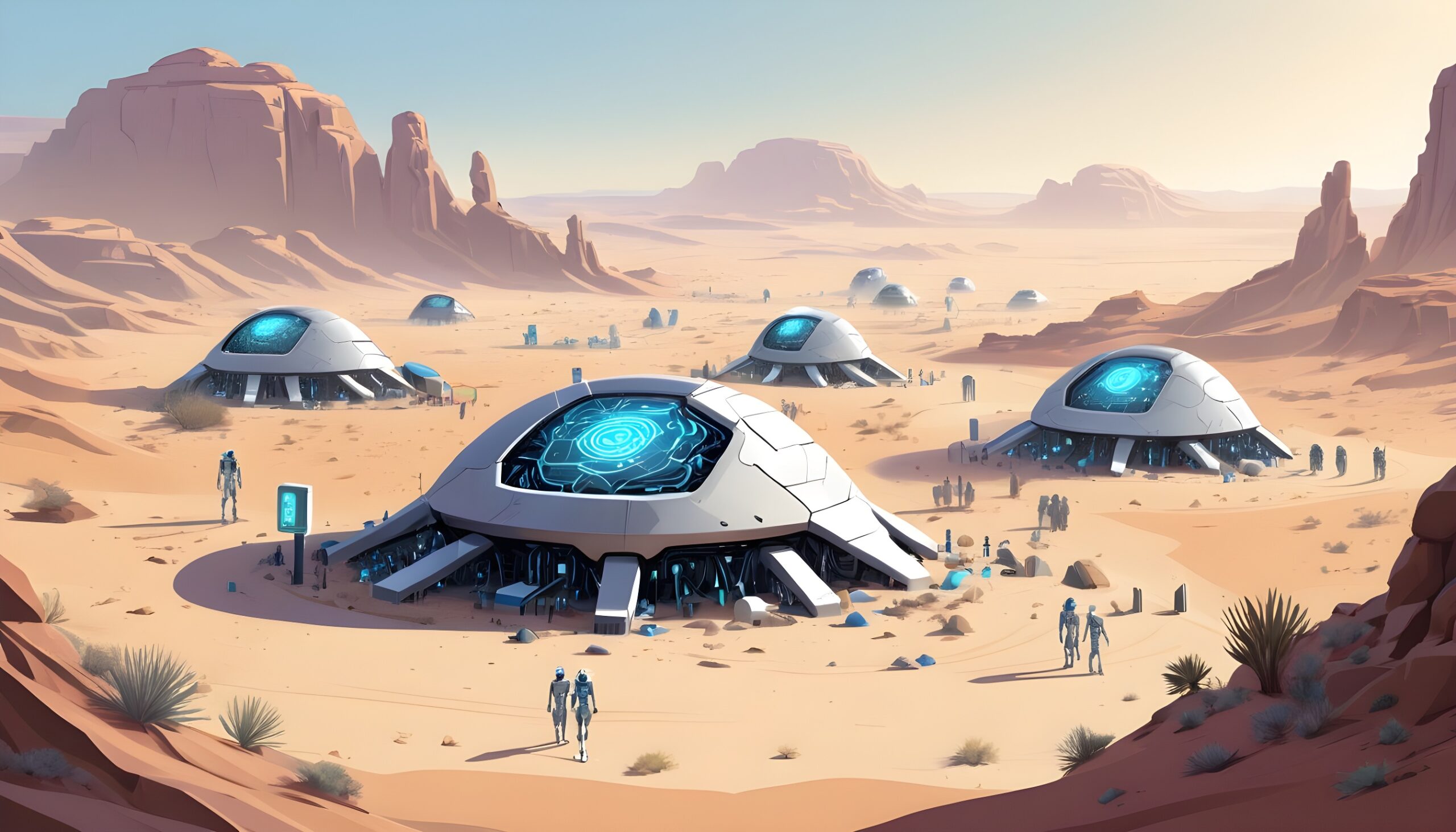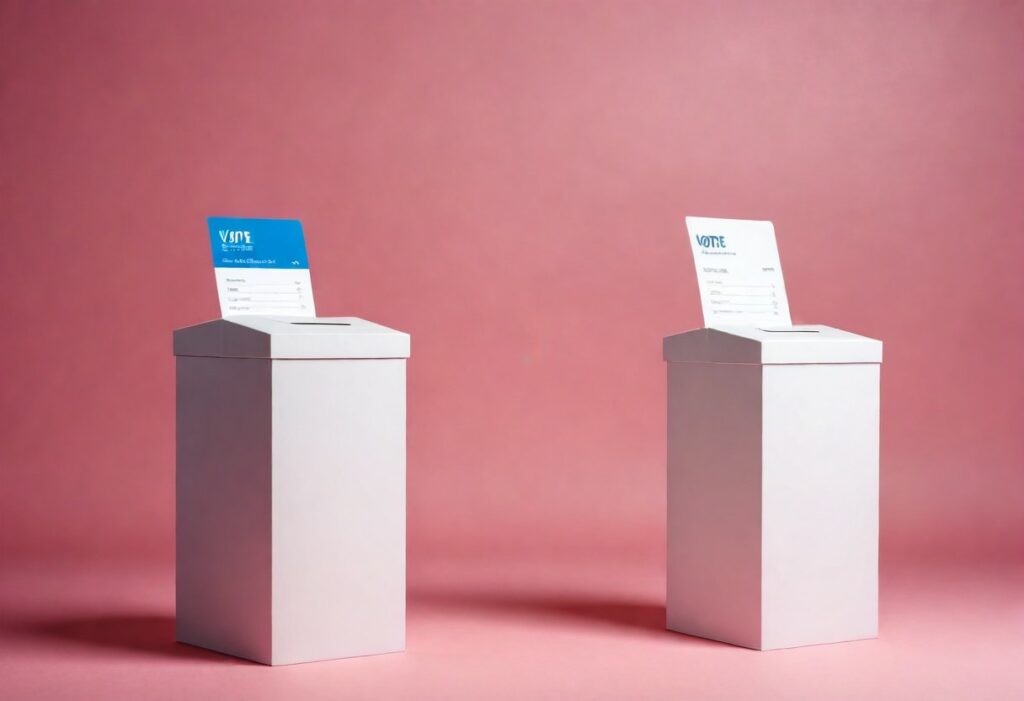DAOs are founded on the principles of decentralization, transparency, and community-driven effort. Smart contracts lay out rules of governance and operations, with decision-making power distributed across stakeholders rather than concentrated in a hierarchical management structure. DAOs often manage pooled assets like cryptocurrency or NFTs, directing their use through member voting.
While still an experimental model, DAOs offer intriguing possibilities for new forms of collaboration and value creation. They allow more open participation, resist capture by special interests, and can unlock wider networks of talent and resources. However, DAOs also face challenges around coordination, decision making efficiency, and adapting to complex or shifting conditions. Integrating supportive AI systems can be a powerful way to address these difficulties.
Opportunities to Apply AI
AI and machine learning tools have rapidly advanced in capability over recent years, with transformative implications for organizations. As DAOs explore innovations to realize their disruptive potential, AI integration offers major opportunities across a range of functions, such as:
- Flexible Governance: DAO governance rules are intended to be transparent and fair, but rigid structures struggle to serve members well as needs change. AI modeling can capture insights from past votes and community sentiment to suggest tweaks to voting methodology, incentives, or smart contract logic that better align with members’ preferences under new circumstances.
- Efficient Decision-Making: DAO decisions often rely on simple majority votes that can become skewed by low voter turnout. AI algorithms can develop more nuanced schemes for weighting votes or setting quorum thresholds based on predictive analytics around member participation. Such solutions lead to outcomes more representative of the majority view.
- Insight Generation: Decentralized organizations involve many dispersed individuals coordinating around a central purpose. AI can uncover network graphs and relational insights across this decentralized web of interactions – illuminating influencers, subgroups, and hidden connections critical to the DAO’s workings. Leaders can leverage these insights to strengthen bonds in the community.
- Predictive Risk Modeling: DAOs hoping to steer major pooled assets or fund significant initiatives require ways to foresee pitfalls and volatility. AI conducts complex multivariate analyses of past performance, market conditions, member profiles, chat sentiment, and more to generate data-backed assessments of risks for different DAO decisions or investment moves.
- Enhanced Token Distribution: Certain DAOs rely on governance tokens to formalize decision-making rights and incentives. The optimal initial distribution and continuing release of such tokens are very complex but vital to a DAO’s early success. AI algorithms can use game theory and predictive analytics around possible usage scenarios to design a custom token model engineered for stability, growth, and community alignment.
- Automated Operations: Smart contracts enable DAOs to automate certain operations like payments and asset transfers based on votes or other inputs. Integrating adaptive deep learning algorithms allows even more functions – liquidity actions, platform configurations, partner interactions, etc. – to flexibly update based on data patterns that consistently advance the DAOs goals.
Integrating AI with Care
While the promise of AI integration is immense, DAOs should approach implementation with care. Central to the model are distributed control and community self-determination – values that could be jeopardized by concentrating AI influence in the wrong hands or failing to validate automated decisions. Some of the steps for responsible integration include:
- Prioritizing explainable AI where members understand how suggestions and predictions are made
- Establishing oversight procedures through representative committees
- Conducting iterative impact reviews on AI tools before locking them into core smart contracts
- Retaining flexibility around AI provider relationships to prevent excessive dependence
Architecting a Responsible AI System
When commissioning the development of custom AI solutions, DAOs should insist on best practices for ethical, transparent, and accountable machine learning. Key considerations include:
- Documentation of development processes for auditability
- Testing for unintended bias that could unfairly disadvantage subgroups
- Cloud-based deployment on segmented infrastructure to limit data access
- Procedural constraints and override protocols to prevent runaway automated activity
- Watermarking and metadata to confirm data provenance and prevent misuse
Together these amount to an AI “bill of rights” that protects the integrity of the system while capturing the benefits it offers.
Exploring Cutting-Edge Opportunities
AI applicable to organizational management remains a fast-evolving field with constant innovations emerging. DAOs are ideally positioned to explore bleeding-edge capabilities before mainstream adoption. Potential directions include:
- Federated Learning – Where models are trained across decentralized networks of devices to preserve privacy and prevent data abuse. Aligns well with DAO ethos.
- Generative AI – Using deep learning to output entirely new content like images, video animations, and dialogue. Could enhance DAO community engagement and ideation.
- Smart Vision – AI that can analyze images, videos, and documents for new insights. A rich input for better understanding DAO operations and member activity.
While the adoption of these tools involves more uncertainty, the experimental nature of DAOs make them fitting environments for trailblazing applications that could later become commonplace.
Moving Towards an AI-Ready Model
For DAOs yet to tap AI capabilities, some key priorities include:
- Audit existing data streams, infrastructure, and smart contracts for readiness to ingest and respond to AI inputs.
- Survey members to identify pain points amenable to AI assistance and workshop needs vs solutions.
- Calculate the required investment to engage dedicated AI teams or to train internal talent.
- Create advisory councils of technical, ethics, and policy experts to oversee responsible AI adoption.
- Implement optics like member passwords and biometrics allowing controlled access to AI systems for security and accountability.
Making these preparations will position an organization to swiftly capitalize on AI opportunities when the need and budget allow.
The Democratization of AI
Much as DAOs represent the democratization of business organizations through decentralization, integrating AI solutions can extend that ethos further. Shared data, models, and algorithms controlled by the community rather than outside parties allow the benefits of intelligence augmentation to be felt by all members rather than just an elite few.
Constructing an open AI architecture specialized to serve the collective will signal the expansion of DAO possibilities. The work patterns such systems unlock also set the stage for wider motifs around distributed governance, finance, and culture.
Conclusion
DAOs are on the vanguard of reimagined social coordination. By harnessing AI as a utility aligned with mutual success, DAOs can overcome inherent challenges around efficiency, insight, and adaptability. AI gives DAO communities enhanced dynamics to more effectively pursue shared goals.
Carefully implemented, responsible AI solutions reinforce rather than undermine the principles of decentralization, participation, and autonomy that make DAOs so compelling. The design choices made today around optimizing human-AI collaboration will cascade into the many realms DAOs stand poised to transform next.





